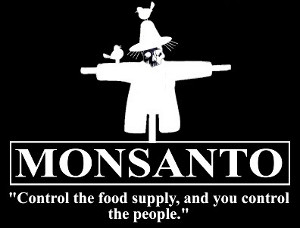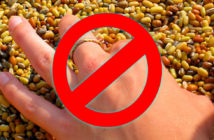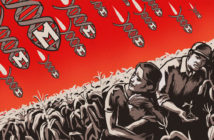Why are we not suing Monsanto for contaminating our nation’s food supply? Why are we not protecting our national security from the dangers of commercial crop monocultures?
Farmers have always saved seeds from their harvest to sow the following year. But Monsanto and other big seed companies have changed the rules of the game. Monsanto has in the past sued over 100 farmers for patent infringement and won cases against farmers who were found to have used seeds without paying the company royalties.
The US Court of Appeals has thrown out a lawsuit that would have preemptively prevented Monsanto from suing small organic farmers with traces of the company’s crops in their fields. Even though the lawsuit was dismissed, the court extracted a binding promise from Monsanto that they would not sue farmers whose crops were inadvertently contaminated with their product.
 The Wall Street Journal tested twenty food products labeled “GMO free” and found that sixteen of them contained traces of genetically modified ingredients; five had significant amounts. One of the companies testing positive with trace amounts was Nature’s Path Foods, the largest organic cereal company in the world.
The Wall Street Journal tested twenty food products labeled “GMO free” and found that sixteen of them contained traces of genetically modified ingredients; five had significant amounts. One of the companies testing positive with trace amounts was Nature’s Path Foods, the largest organic cereal company in the world.
The Center for Food Safety has pointed out that many farmers have switched to GMO crops after contamination: “In some parts of this country and Canada, conventional and organic farmers alike have lost premium markets as they have been forced to sell contaminated crops into the genetically engineered crop stream.”
Open-pollinating crops, like beets, brassicas, carrots, corn and squash, is vulnerable to GMO contamination. Wind and insects can carry pollen from GMO crops a distance of a few yards to several miles.



